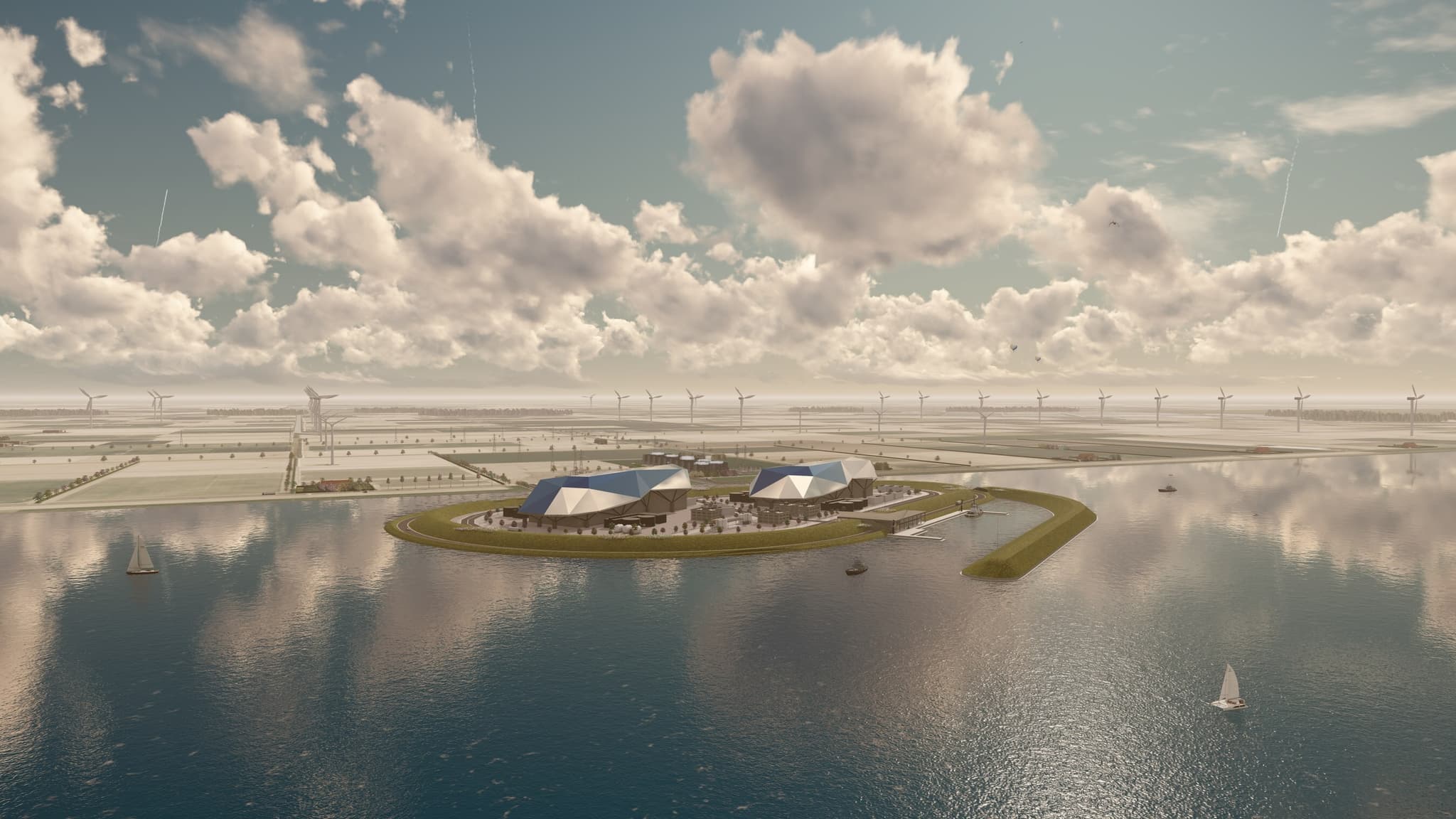Betting on Small Modular Reactors to power AI-driven data growth
Equinix signed a Letter of Intent with ULC-Energy for up to 250 MWe to power data centers in the Netherlands
Published on August 16, 2025

Twin deployment of Rolls-Royce SMR with total 940MWe capacity. © ULC-Energy B.V.
Team IO+ selects and features the most important news stories on innovation and technology, carefully curated by our editors.
Global data center operator Equinix has taken a remarkable step toward securing long-term, low-carbon energy for its Dutch operations. It signed a Letter of Intent with Amsterdam-based nuclear developer ULC-Energy for a power purchase agreement (PPA) of up to 250 MWe. The electricity will come from Small Modular Reactors (SMRs), a new generation of nuclear power technology that promises steady, zero-emission baseload power in a more flexible format than traditional reactors.
ULC-Energy, which in 2022 selected Rolls-Royce SMR as its preferred technology provider, is developing plans to deploy 470 MWe light water SMRs in the Netherlands. Rolls-Royce’s SMR program, backed by UK government funding, has been gaining momentum. In June, it was named the preferred bidder to partner with Great British Energy Nuclear to deliver the UK’s first SMR projects.
Meeting the AI power challenge
The agreement with Equinix marks the first time a global data center company has directly partnered with an SMR provider. For Equinix, the motivation is clear: the energy demands of artificial intelligence are pushing the limits of existing grids and renewable generation capacity.
“The potential challenges to powering reliable and sustainable digital infrastructure are considerable,” said Ali Ruckteschler, Senior Vice President and Chief Procurement Officer at Equinix. “Equinix has always been at the forefront of energy innovation, signing the data center industry’s first agreement with an SMR provider and pioneering the use of fuel cells a decade ago. Powering AI infrastructure responsibly is a global priority.”
AI workloads require large-scale, continuous power, something intermittent renewables like solar and wind cannot guarantee without substantial storage. Nuclear, with its high capacity factor and predictable output, is increasingly being discussed as a complement to renewables in Europe’s energy mix, especially as the continent works to decarbonize while electrifying transport, industry, and computing.
A European debate on nuclear’s role
The Netherlands has historically had only limited nuclear capacity, with a single operating reactor in Borssele. But policy sentiment has shifted in recent years. The Dutch government now supports building two large reactors and is open to SMR deployment, seeing them as a way to diversify the country’s low-carbon baseload options.
Equinix’s deal with ULC-Energy could serve as a high-profile proof of concept, demonstrating that SMRs can directly power large industrial consumers - in this case, data centers - without adding strain to public electricity grids.
This aligns with broader European conversations. France, Finland, and the UK are all advancing SMR projects, while the EU taxonomy now officially includes nuclear as a sustainable investment category. However, challenges remain: SMRs must still navigate regulatory approval, secure financing, and prove their cost-competitiveness in real-world deployment.
Aiming for 100% Clean Power
Equinix already operates 250 sites worldwide on 100% renewable energy and has achieved 96% clean energy coverage across its global portfolio. The company has committed to reaching 100% clean and renewable energy globally by 2030. Nuclear could be a key piece of that puzzle; not replacing renewables, but reinforcing them.
If ULC-Energy and Rolls-Royce SMR succeed in delivering their Dutch project on schedule, Equinix could be among the first major corporate buyers of SMR electricity in Europe. For AI infrastructure, which analysts warn could double or triple data center energy use this decade, securing such a long-term, stable, zero-carbon supply could become a competitive advantage.
“With Equinix’s operational expertise, trusted supply chain, and close partnerships with the U.S. and global governments and utilities, we are poised to deliver safe, secure, and reliable AI solutions for our customers and the communities we serve,” Ruckteschler added.
For now, the deal remains at the Letter of Intent stage, with final contracts, regulatory approvals, and construction timelines still ahead. But if realized, it would mark a milestone in marrying Europe’s AI ambitions with its climate goals — powered by a new generation of nuclear technology.

Watt Matters in AI
Watt Matters in AI is a conference that aims to explore the potential of AI with significantly improved energy efficiency. In the run-up to the conference, IO+ publishes a series of articles that describe the current situation and potential solutions. Tickets to the conference can be found at wattmattersinai.eu.

